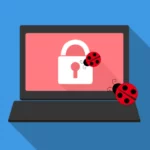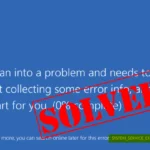You’re new to P2P file sharing, and you want to stay safe and legal. It’s an understandable concern. People who download illegal or infringing files and get caught often suffer at the hands of the copyright holder. In many cases, that means either hefty fines, jail time, or possibly both depending on the circumstances. Here’s how to protect yourself, and your computer.
Tips for Safe File Downloads

Recognize Illegal Files
The easiest, and best, way to protect yourself is to stay away from the sites that are openly hostile to copyright laws and intellectual property. You know the ones. If the administrators, or the users on the site, are proud of the fact that they are pirating content, this is not the place you want to be hanging out. It’s eventually going to come back to haunt you.
Beef Up Your Anti-Virus
Because you can never really tell what you’re downloading until you’ve downloaded it, having good anti-virus software is absolutely essential. Even if you have a good program installed on your computer now, you have to make sure you’re updating it regularly.

On top of an anti-virus application, find yourself a good anti-malware program. Having both anti-virus, and anti-malware, will dramatically decrease your risk of being infected with some nasty virus, worm, or something worse, like ransomware.
Get a Good Torrent Client
Having a good torrent client can also reduce or eliminate your risk of downloading an infected or corrupted file. For example, the paid version of the Vuze client comes equipped with its own anti-virus program.
Use a Private Tracker
A private tracker is, as the name implies, private. Why use a private tracker? It’s not so much for privacy (although private trackers do offer this feature). It’s more for security. Private communities are often more strict than public ones. They tend to frown on, and even actively prohibit, corrupted or malicious and infringing files.

That’s because all of the users in the community using the private tracker are sharing a lot of files with each other. They don’t want to pass an infection to a friend. Usually, in order to get into a private community, you need to be recommended by an existing member or jump through a lot of hoops. Even then, when you’re in, there are strict rules that you have to abide by.
Never Assume Copyright Status
By never assuming the copyright status of a file, you save yourself a lot of frustration, time, and money later. Always verify that what you’re about to download is, in fact, free of any copyright or is approved by the copyright holder for gfree sharing. Check with the Creative Commons, look for Copyleft licensing.
A few minutes of research is worth it. Fortunately, in most cases, it’s pretty easy (and obvious) to spot copyright-protected material. New, and popular songs, movies, and books will all be copyright-protected.
But, even for more obscure content, it won’t be difficult to figure out its copyright status. Copyright holders tend to be very serious about protecting their intellectual property. If it’s being sold on legitimate sites it may be less likely that it is also approved for free sharing. But just because something is protected by copyright that doesn’t mean all copyright holders have prohibited – or not authorized – free sharing: many have.
Katherine Phillips is a digital data management whiz. From file sharing to organization and security, she often blogs about the tips and tricks of keeping files under control in the computer age.






1 Comment
Thank you for sharing your positive feedback with us!